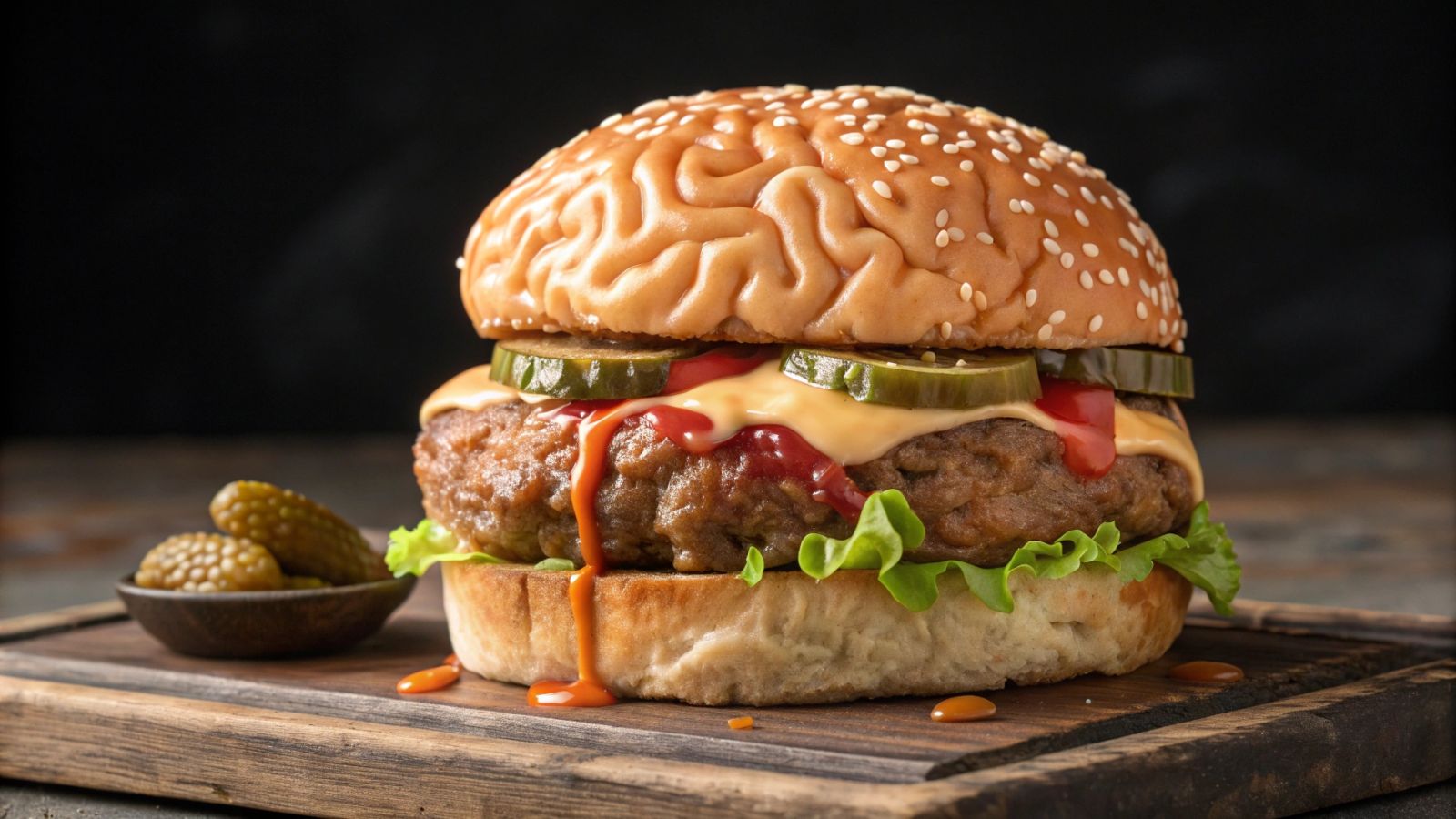🧠 Eating too much fat affects your long-term memory
Published by Cédric,
Article author: Cédric DEPOND
Source: PLOS Genetics
Other Languages: FR, DE, ES, PT
Article author: Cédric DEPOND
Source: PLOS Genetics
Other Languages: FR, DE, ES, PT
Follow us on Google News (click on ☆)
This work, conducted on an animal model, reveals that beyond the well-known metabolic consequences, this type of diet disrupts a cellular cleaning process essential for the proper functioning of our brain. The study opens up encouraging prospects for the possibility of countering these negative effects.

The Drosophila model: an insect in the service of neuroscience
Researchers from the University of Chiba used the fruit fly, or Drosophila. This small insect shares fundamental metabolic and neuronal pathways with humans. Its use allows for precise and rapid genetic experiments, offering an overview of the nervous system.
Flies were subjected to a high-fat diet for one week. Other flies, in parallel, continued a healthy diet for comparison. Scientists observed a significant increase in lipids and glucose in the bodies of the flies that followed the high-fat diet. This metabolic disturbance served as a starting point for studying the impact on cognitive functions.
Memory tests were implemented. The insects had to associate a specific odor with an unpleasant sensation. The results, published in PLOS Genetics, show a clear impairment of medium- and long-term memory. In contrast, immediate memory remained intact.
The central role of autophagy in memory formation
To explain the link between a high-fat diet and memory impairment, the team focused on autophagy, the cell's recycling system. In flies on the high-fat diet, proteins related to this process showed signs of dysfunction. The accumulation of unrecycled cellular waste was particularly visible.
The scientists then genetically inhibited a key autophagy protein in the neurons of adult flies that had followed a healthy diet. They observed the same weakening of medium-term memory as that seen in the neurons of flies that had followed the high-fat diet. This manipulation confirms the direct link between autophagy and memory consolidation.
The final step of cellular recycling, vesicle fusion, was found to be defective. The organelles responsible for degrading waste failed to fuse correctly. Genetic analysis confirmed a decrease in the activity of the genes responsible for this key step.
To go further: What is autophagy?
Autophagy is an essential maintenance process for all our cells. It allows for the degradation and recycling of damaged or unnecessary cellular components. This mechanism ensures the permanent renewal of the cytoplasm.
This internal "cleaning" is vital for neurons, cells that do not divide. It protects them from the accumulation of toxic proteins. The Nobel Prize in Medicine was awarded in 2016 for the discovery of the molecular mechanisms of autophagy.
The process follows precise steps. It begins with the formation of a vesicle, the autophagosome, which encapsulates waste. This vesicle then fuses with a lysosome, whose digestive enzymes destroy the cargo. The released nutrients are then reused.
Why does a high-fat diet disrupt lysosomes?
The Japanese study suggests that excess lipids affects the cellular signaling necessary for the proper functioning of lysosomes. These organelles are the "stomachs" of the cell, responsible for digesting waste.
High-fat diets can alter the composition of lysosomal membranes. This physical alteration would prevent their efficient fusion with autophagosomes. Waste would then accumulate in the cell, disrupting its activity.
The expression of genes coding for lysosomal enzymes would also be reduced. A surplus of saturated fats could trigger an inflammatory response or endoplasmic reticulum stress, indirectly affecting the production of these essential enzymes.